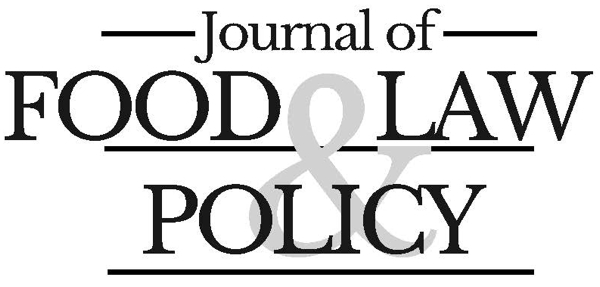Got milk? What can food law and policy teach us about this well-worn tag line? What does dairy have to do with history, colonization and animal rights? The latest issue of the University of Arkansas' Journal of Food Law and Policy (vol. 16, no. 1) looks into these questions and many more with a special issue devoted to the relationship between law and milk from an interdisciplinary perspective.
In "Dairy Tales: Global Portraits of Milk and Law," Jessica Eisen, assistant professor at the University of Alberta; Xiaoqian Hu, associate professor at the University of Arizona James E. Rogers College of Law; and Erum Sattar, professor at Pace University introduce the themed issue and the idea of examining the drinking of cow's milk within the context of law, colonialism, gender studies, economic and other interdisciplinary perspectives.
"Something to Celebrate?: Demoting Dairy in Canada's National Food Guide" by Maneesha Deckha, the Lansdowne Chair in Law at the University of Victoria, looks at Canada's official dietary guidelines. Using a critical animals studies lens, Deckha looks at the context within which milk is promoted. Deckha asks whether a de-emphasis on dairy in the guidelines truly is indicative of a shift away from animal-based diets and the commodification of animals.
Kelly Struthers Montford, assistant professor of criminology at Ryerson University, writes in "Milk and Law in the Anthropocene: Colonialism's Dietary Interventions," discusses recent legislative attempts to prohibit non-dairy products from being labeled as milk. She argues that these attempts should be viewed in the context of colonial imposition of dairy-based diets and the suppression of Indigenous peoples in North America.
"'A Glass of Milk Strengthens a Nation.' Law Development, and China's Dairy Tale" by professor Xiaoqian Hu investigates the legal, political and socioeconomic factors that drove China to become the world's largest consumer and third largest producer of milk, and the continuing impact on Chinese agriculture.
Merisa S. Thompson, lecturer in gender and development at the University of Birmingham's International Development Department, is the author of "Milk and the Motherland? Colonial Legacies of Taste and the Law in the Anglophone Caribbean." This article takes a feminist and intersectional perspective to look at milk, the law and colonialism over several hundred years in the Caribbean. "Ultimately, the paper shows how animals, peoples and nature were manipulated for colonial and capitalist ends and how laws relating to animals and milk produced change at specific historical junctures in in tandem with shifts in colonial and post-colonial relations and new constellations of gender, race, class and animality."
Contacts
Daniel Bell, faculty services and outreach librarian
School of Law
479-575-8697,
